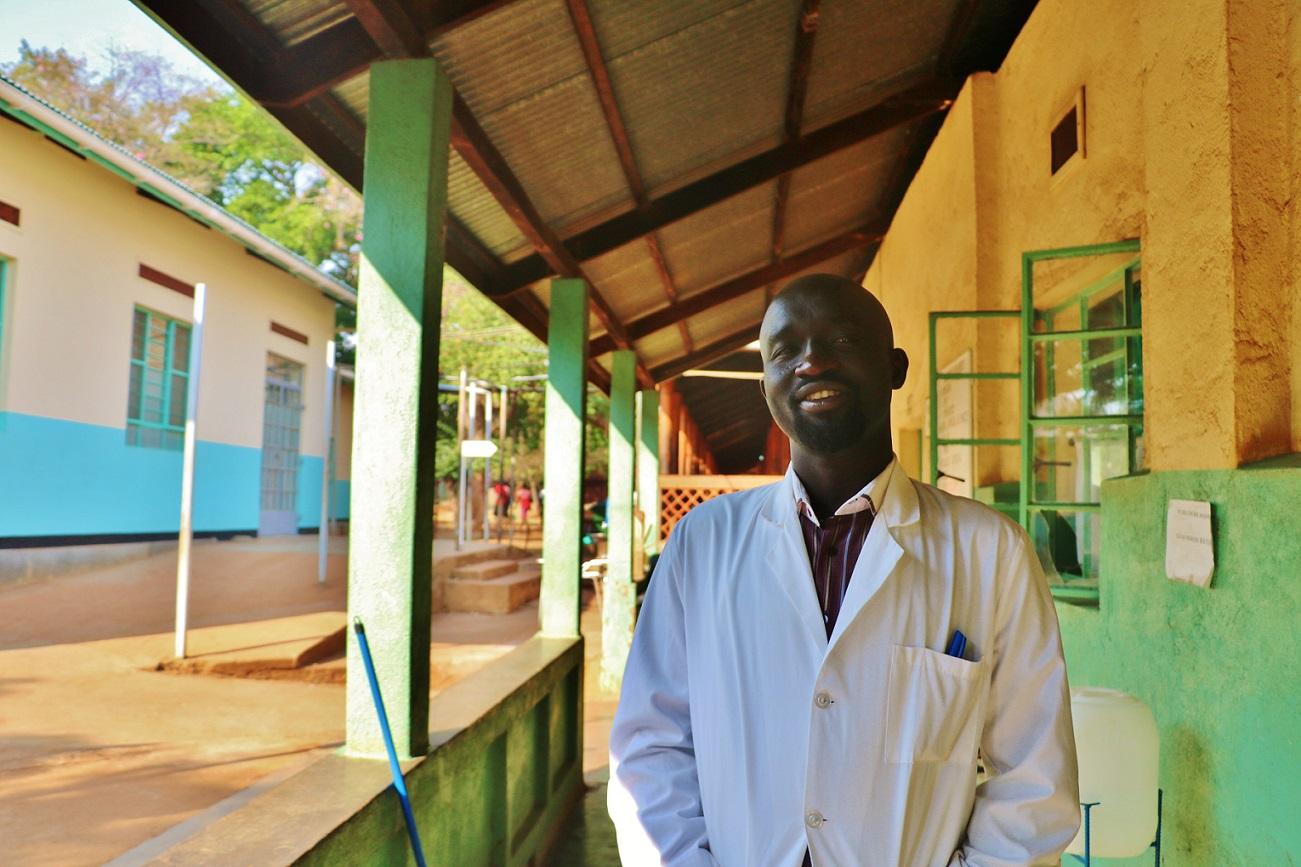‘Unfortunately a lot of diseases are still poverty related’
Doctor Daniel Okello has worked for Angal Hospital, in the Northern region of Uganda, for over 6 years. The hospital is situated in a poor and rural area and faces, like many health facilities in the region, a lack of means and under-staffing. Still doctor Okello carries on: "In this hospital we look out for each other, the job satisfaction
makes it worth to push through the hard times."
I’ve been with this
hospital for 6 years now. I came here fresh from school because, they urgently needed medical officers. In the
beginning I had a hard time adjusting. The place is remote compared to Gulu,
the city I’m from, but as soon as you adjust your mind-set, you can handle it.
Most people in this
area are living in poverty. Therefore a lot of diseases are poverty related and could be
easily avoided, if not for the lack of recourses people face. You see this for example in perforations of intestines due to bad food
patterns when people eat roots or bad herbs. A lot could be prevented given the
correct health education. This could truly make a difference.
I try to take the
time to teach my patients, teach mothers about basic healthcare for their
children. But this takes a lot of time and as a doctor
you are often the only one in a ward. Taking 20
to 30 minutes per patient to talk things through isn’t always possible and
takes a lot of effort.
Student
life
In 2009 I finished my training through an internship
in Gulu hospital and went straight to Angal. When you are a medical student it
is all about the books and the exams. Doing my internship in a town setting
also made it easy. It got me thinking: ‘this doctor
thing is rather easy’. But there is
much more you need to take into account. I realized the climate, the culture of
the people, the working conditions can vary a lot. Overall I think it is
important to understand as a trainee that what you
learn in class is less than 20% of what you do on the ground.
As a kid I admired doctors. I wanted to become like them,
even though I didn’t really understand what they were doing. So when I got
older I informed myself on the profession and decided I wanted to go ahead
with my childhood dream. I have never regretted it.
Result-based
financing
I like the quality aspect that comes with
introducing result-based financing. Before we didn’t
always take blood pressure of every patient, we didn’t do a full lab test. Instead
we mainly treated patients based on a doctors clinical assessment. Now we fully
investigate. This has made a big difference. We now know in advance if people
are fit for operation. We spend more time with each patient and have more drugs
than before to treat people.
We are happy with the support from BTC but I think we could
still benefit from more regular visits of the project team. Result-Based Financing is not an easy system to implement. It really takes a complete
mentality shift. Therefore it is good to have close contact with each
other.
Challenges
One big challenge remains the lack of qualified
staff. We are understaffed and under paid. With more patients
coming in due to lower fees, it creates more fatigue with staff. We are in need
of specialized medical doctors and not just generalists. If possible I would love to go back in for training.
Some of our wards are too small. We currently have about 70
beds in the children’s ward, but during busy times almost 200 children stay
there. They sleep on the floor to save space. In future, this needs to change.
Working
together
What I like about Angal hospital is that regarding
of the circumstances we really work together as a team. We
look out for each other. Besides this, the job satisfaction makes it worth to
push through the hard times. As a final remark I want to say that our lab has
recently really improved, which has made our work easier and made us deliver
higher quality care.
Dernières actualité de ce projet
Pas d'actualité

